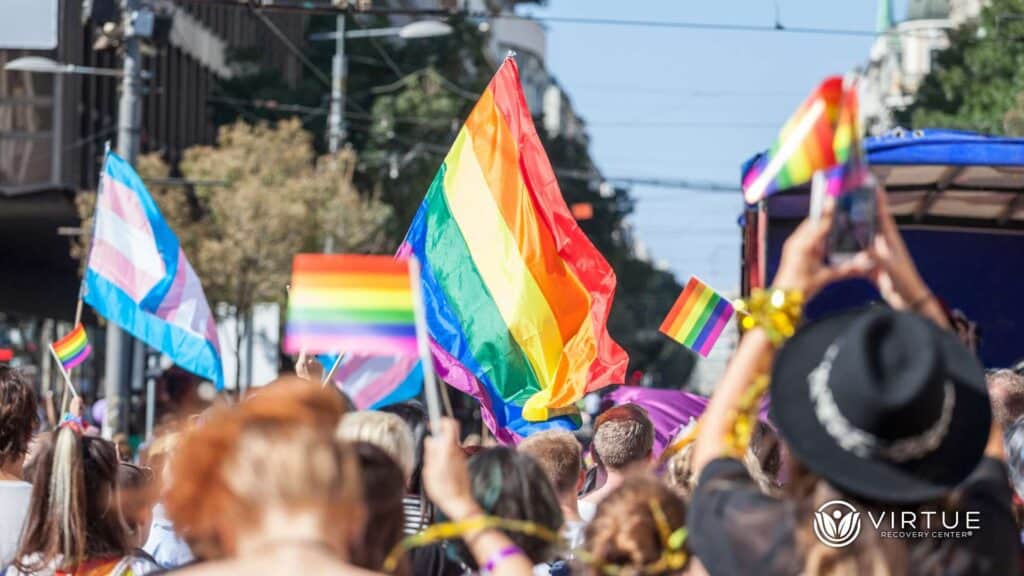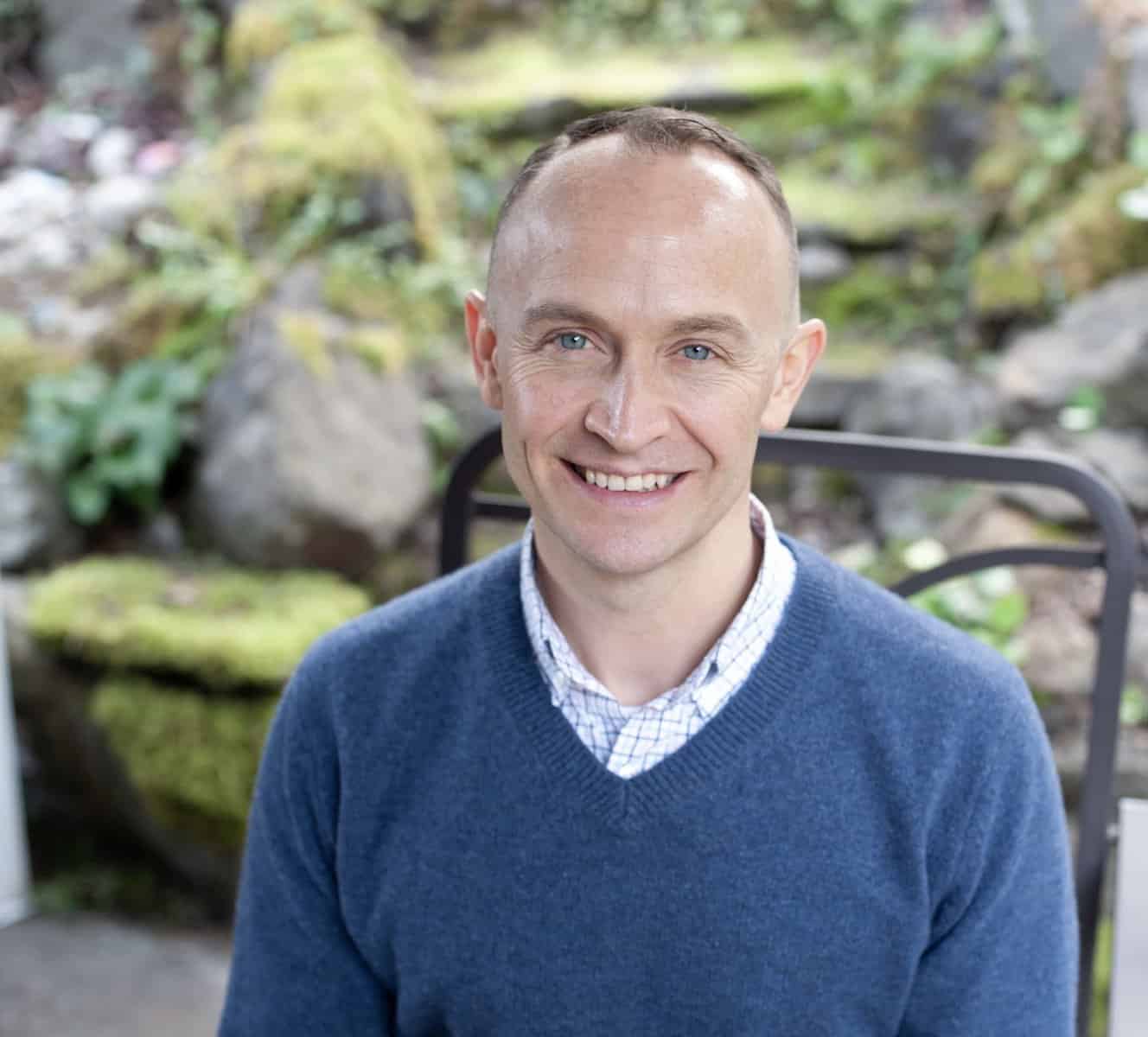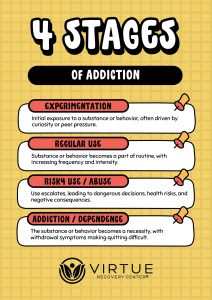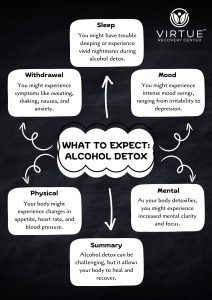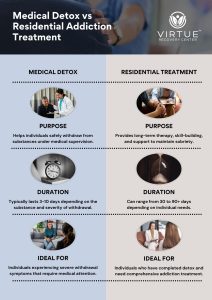Creating safe LGBTQIA+ friendly sober spaces is essential for supporting the recovery and mental health of queer individuals. These inclusive environments provide alternatives to traditional social settings that often revolve around alcohol and drugs, offering a sense of belonging and community for those in recovery. This article explores the importance of sober spaces, the unique challenges faced by the queer community, and practical steps for building and sustaining these supportive environments. If you or someone you know is struggling with addiction, contact Virtue Recovery Las Vegas at 866-520-2861.
Key Takeaways
- Sober spaces are crucial for the mental health and recovery of LGBTQIA+ individuals, offering a safe, supportive environment free from the triggers of alcohol and drugs.
- Inclusive environments tailored to the needs of the queer community help reduce stigma and discrimination, making recovery more accessible and sustainable.
- Building and maintaining these spaces involves community engagement, partnerships, and a commitment to cultural sensitivity and inclusivity.
Introduction
For many in the LGBTQIA+ community, finding safe spaces that support sobriety can be challenging. Traditional social settings, such as bars and clubs, often center around alcohol and can be triggering for those in recovery from substance use disorders. The need for safe, sober spaces where queer individuals can feel supported, understood, and free from judgment is more critical than ever. This article delves into the importance of creating LGBTQIA+ friendly sober spaces, the unique challenges faced by queer individuals in recovery, and practical steps for building these inclusive environments.
Understanding the Need for Safe Sober Spaces in the LGBTQIA+ Community
The Intersection of Queer Identity and Substance Use
The LGBTQIA+ community faces unique challenges that contribute to higher rates of substance use and substance abuse compared to the general population. Discrimination, stigma, and a lack of safe spaces often lead queer individuals to seek solace in environments where alcohol and drugs are prevalent. Nightlife has traditionally been a cornerstone of queer life, offering a space for self-expression and community but often centering around alcohol. This creates a difficult situation for those in recovery, as the very spaces that offer community also pose significant risks for relapse.
Challenges in Traditional Recovery Spaces
Traditional recovery settings may not always feel inclusive or safe for LGBTQIA+ individuals. The lack of inclusive spaces and potential for discrimination can make it challenging for queer people to fully engage in their recovery. This underscores the importance of creating alternative social spaces specifically designed to be inclusive and supportive of queer identities. Sober spaces that cater to the needs of the LGBTQIA+ community can provide a much-needed refuge where individuals can focus on their mental health and recovery without fear of judgment.
Building Inclusive Sober Spaces for the LGBTQIA+ Community
Creating Safe, Sober Spaces
Building and maintaining safe, sober spaces for LGBTQIA+ individuals requires careful consideration and a commitment to inclusivity. These spaces should welcome all identities within the LGBTQIA+ spectrum, ensuring everyone feels safe and respected. This includes using inclusive language, being mindful of accessibility needs, and fostering an environment where all community members can feel at home. Additionally, it is crucial to create spaces that actively resist the discrimination and stigma often encountered in broader society.
Alternative Social Spaces and Activities
Alternative social spaces play a crucial role in the recovery journey for many queer individuals. Sober queer bars, coffee shops, book clubs, and other substance-free venues offer the community a place to gather without the pressures of alcohol or drugs. These sober spaces provide opportunities for socializing and building connections in an environment that supports sobriety. They also offer a counterpoint to the traditional nightlife scene, showing that it is possible to enjoy social activities in a way that aligns with one’s recovery goals.
The Role of Community in Supporting Recovery
For many queer individuals, the concept of chosen family—a support network of friends and loved ones who may not be biological relatives—is essential. This chosen family plays a vital role in the recovery process, providing emotional support, understanding, and acceptance. Sober spaces help to foster this sense of community, offering a place where LGBTQIA+ individuals can connect with others who share similar experiences and challenges. By creating and maintaining these spaces, the community can ensure that all members have the support they need to recover.
The Impact of Safe Sober Spaces on Recovery
Mental Health and Recovery
Their environment can significantly impact the mental health of LGBTQIA+ individuals. Safe, sober spaces contribute to improved mental health by providing a refuge from the triggers and stresses that can lead to substance use. These spaces reduce the risk of relapse by offering a supportive environment where individuals feel valued and understood. Furthermore, these spaces allow for the celebration of queer identities in a way that aligns with a commitment to sobriety, fostering a sense of pride and empowerment.
Reducing Stigma and Discrimination
Inclusive sober spaces play a crucial role in reducing the stigma and discrimination that many LGBTQIA+ individuals face in traditional recovery environments. By creating spaces where queer identities are celebrated and respected, the community can help to dismantle the barriers that often prevent individuals from seeking help or fully engaging in their recovery. This also helps to normalize the idea of sobriety within the queer community, challenging the notion that socializing and substance use must go hand in hand.
Promoting Long-Term Sobriety
Sober queer spaces are instrumental in promoting long-term sobriety by providing ongoing support and connection. The consistency of these spaces—whether through regular events, meet-ups, or simply a reliable place to gather—helps individuals maintain their recovery over time. Additionally, these spaces often serve as hubs for sharing resources, such as mental health services, substance abuse treatment programs, and information about other sober spaces nationwide. By offering these resources, sober queer spaces help individuals navigate the challenges of recovery and sustain their sobriety in the long term.
Practical Steps to Create LGBTQIA+ Sober Spaces
Engaging the Community in Space Creation
Creating sober spaces that truly meet the needs of the LGBTQIA+ community requires active involvement from those the spaces are designed to serve. Community engagement ensures that the spaces are welcoming, inclusive, and responsive to the specific challenges faced by queer individuals in recovery. This can involve hosting focus groups, gathering feedback from community members, and involving queer leaders in the planning and execution of these spaces.
Partnerships and Resources
Building successful sober spaces often requires partnerships with local businesses, treatment centers, and organizations committed to inclusivity and sobriety. These partnerships can provide the necessary resources, such as funding, venues, and professional support, to create and sustain these spaces. Additionally, leveraging resources like mental health services and substance abuse treatment programs can enhance the support available within these spaces, making them more comprehensive and accessible.
Sustaining Sober Spaces
Maintaining and growing sober spaces over time requires ongoing community involvement, adaptability, and a commitment to visibility. Regular events, consistent promotion, and participation in larger community activities—such as Pride Month—can help keep these spaces vibrant and relevant. Additionally, ensuring that these spaces remain adaptable to the community’s changing needs is crucial for their long-term success. This might include expanding the types of events offered, increasing accessibility, or providing more targeted resources for specific groups within the LGBTQIA+ community.
Conclusion
Creating safe LGBTQIA+ friendly sober spaces is vital for supporting the recovery and mental health of queer individuals. These inclusive environments provide a necessary alternative to traditional social spaces that often revolve around substance use, offering a refuge where individuals can connect, heal, and thrive. By fostering community, reducing stigma, and promoting long-term sobriety, these spaces play a crucial role in the recovery journey. If you or someone you know is struggling with addiction, contact Virtue Recovery Las Vegas at 866-520-2861 for more information.
FAQs
What are LGBTQIA+ friendly sober spaces, and why are they important?
LGBTQIA+ friendly sober spaces are environments specifically designed to support queer individuals in recovery from substance use disorders. They are important because they provide safe, inclusive spaces free from alcohol and drugs, where individuals can connect with others in the community and receive support for their recovery.
How do sober spaces support the mental health and recovery of queer individuals?
Sober spaces support the mental health and recovery of queer individuals by offering refuge from the triggers and stresses of traditional social settings. These spaces reduce the risk of relapse and provide a supportive environment where individuals can focus on their sobriety.
What challenges do LGBTQIA+ individuals face in traditional addiction recovery settings?
LGBTQIA+ individuals often face challenges in traditional recovery settings, including a lack of inclusivity, potential discrimination, and the absence of spaces that cater specifically to their unique needs. These challenges can make it difficult for queer individuals to fully engage in their recovery.
How can the community contribute to creating and sustaining LGBTQIA+ sober spaces?
The community can contribute by actively participating in creating and maintaining sober spaces, providing feedback, attending events, and supporting partnerships with local businesses and organizations. Ongoing involvement and adaptability are key to sustaining these spaces over time.
What types of activities and events are offered in LGBTQIA+ sober spaces?
LGBTQIA+ sober spaces may offer a variety of activities and events, such as sober queer bars, coffee shops, book clubs, in-person meet-ups, and social gatherings. These activities provide alternatives to traditional nightlife and offer opportunities for connection and community building.
How do I become a LGBTQIA+ friendly business?
To become an LGBTQIA+ friendly business, prioritize inclusivity in your policies, practices, and customer interactions. Train staff on diversity and inclusivity, use gender-neutral language and create a welcoming environment for all. Actively support LGBTQIA+ causes and ensure your business is a safe space for everyone.
How can you mark a business as LGBTQIA+ friendly?
Mark your business as LGBTQIA+ friendly by displaying symbols like the rainbow flag, using inclusive language in marketing materials, and listing your business in LGBTQIA+ directories. Publicly support LGBTQIA+ events and causes to demonstrate your commitment to inclusivity and equality.
Resources
https://nida.nih.gov/research-topics/lgbtqi-people-and-substance-use

